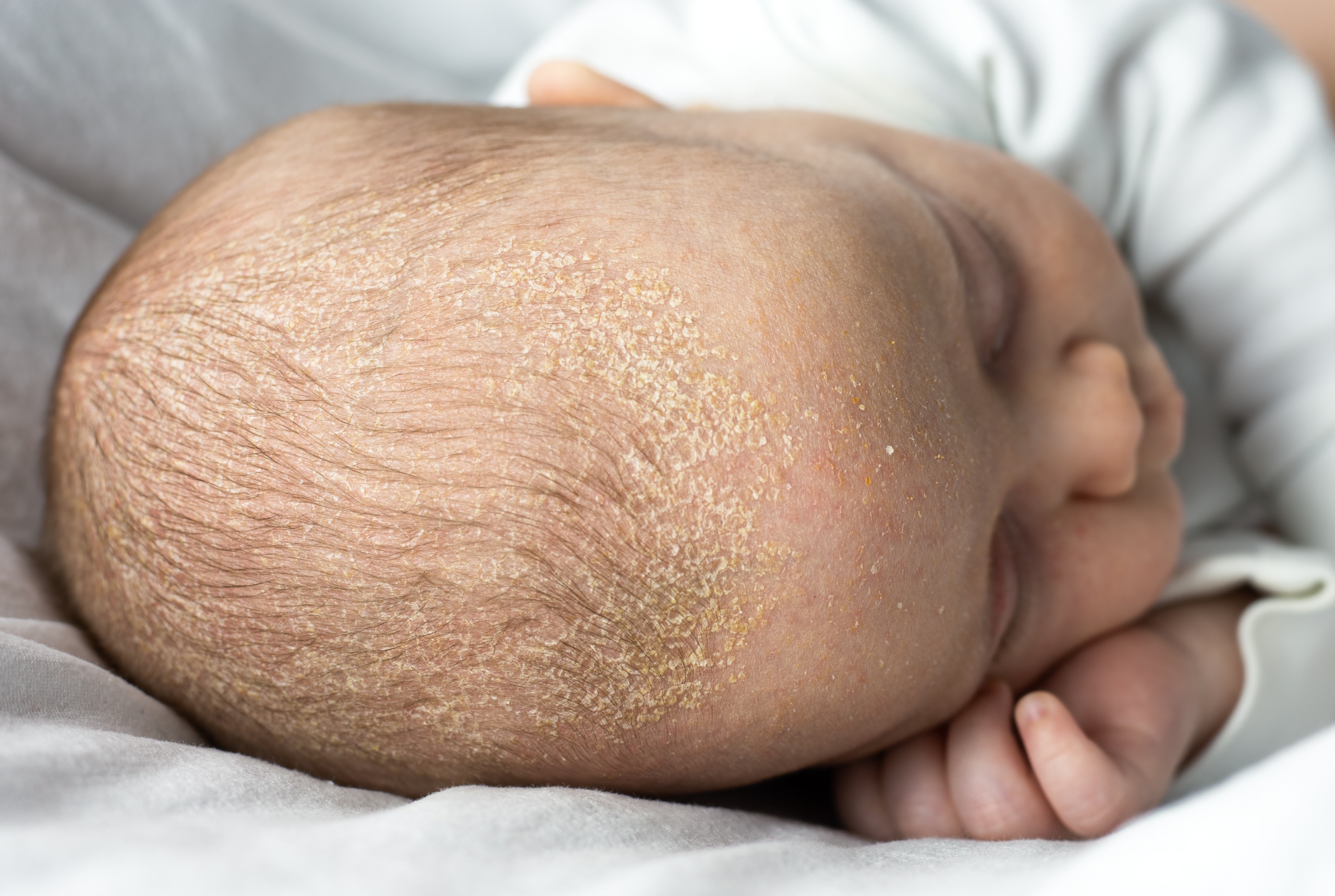Dry scalp vs. cradle cap: How can I tell the difference?
At first sight, dry scalp and cradle cap can be hard to differentiate. Dry scalp is simply flaky skin on the scalp. Cradle cap (seborrheic dermatitis), on the other hand, starts with flaky skin but often evolves into a more serious and complex set of symptoms.
Dry Scalp: a very common occurrence
The skin flaking associated with dry scalp is caused by a number of common triggers, including sun exposure, changes in weather, excessive bathing, and fragrances and oils in shampoos and lotions. Dry scalp often resolves on its own within a day or two.
Cradle cap: Caused by too much oil
Cradle cap is less common than dry scalp but affects about 10 percent of infants at some point in their infancy. It usually presents itself in the first three years of life – often peaking at three months old.
Cradle cap can appear in areas dense in oil glands, including the scalp, the T line of the face, and external parts of the ears. Experts have not yet pinpointed an exact cause for cradle cap, but one theory is that it is linked to changes in the mother’s hormones at the time of birth.
The condition is often triggered when a baby produces too much sebum, or oil, underneath the skin. These oily patches on the scalp can progress from flaky skin that looks like dry scalp to thick yellowish patches on the scalp. The patches can appear oily, scaly, or crusty.
Brushing to treat cradle cap
Cradle cap can be unsightly, but it is a non-contagious health condition. It is quite easy to clear up with the right tool.
The Bean-b-Clean brush provides the perfect gentle tool for addressing cradle cap – and washing infant hair. Its short, firm bristles can remove cradle cap patches easily and painlessly. Unlike other baby brushes, which may have bristles that are too long or too soft, the Bean-b-Clean brush is intended specifically to be used for safely eliminating cradle cap.\
If your baby’s scalp symptoms don’t resolve within a few weeks or change or worsen, consult your pediatrician.



